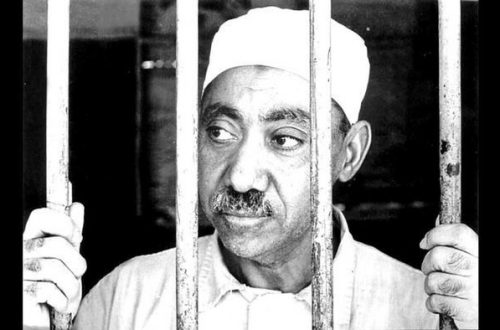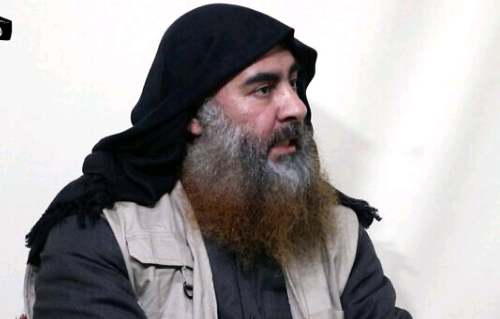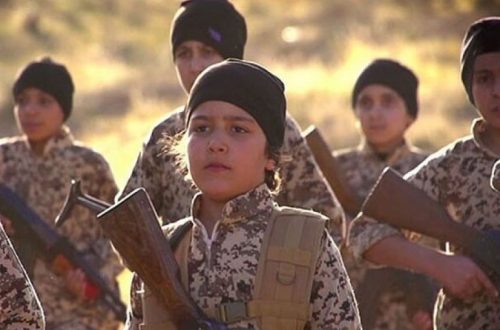Dan Hodges’ recent post calling for an enquiry into Muslim integration met with predictably mixed responses. Raheem Kassam thought it should have gone further, whereas others found it anti-Muslim, even racist. One objection raised was that Hodges’ repeated ‘we’ seemed to assume that none of ‘us’ are Muslim. This is perhaps debatable, but the same charge could certainly be levelled at some of the tabloids, with headlines such as ‘BBC put Muslims before you!.
But it’s not just the tabloids that pit ‘Britons’ against ‘Muslims’. On The Report, for the Islam Channel, Yasmin Khatun recently interviewed a British supporter of ISIS, Aby Rumaysah.
I think everyone has felt the sharp sword of democracy and freedom in the Middle East and other Muslim countries across the world, so it’s not surprising to see the Caliphate say things like this, and I’m sure many Muslims would sympathise across the world with the actions that they are carrying out in terms of defence. So I’d say look, the Americans, and the British and the allies, they need to stop fighting against the Muslims, they need to stop stealing their resources, and interfering in their affairs. I think the world will be a much safer place if the Americans and the West generally would stop interfering with Musllims. (Starts at 3:45)
Later in the same programme two very different Muslim spokespeople were asked for their views on ISIS, Mohammed Amin (of the Conservative Muslim Forum) and Dilly Hussain, Deputy Editor of 5Pillarz. Amin said he supported the proposal that those who go abroad to fight for ISIS be stripped of their passports. Hussain, predictably, raised the topic of British citizens who fight in the IDF. Amin countered that Israel is an ally, and so the issue simply isn’t a problem.
Although my conclusions would be different from his, I did agree with Dilly Hussain when he said that we needed to unpack what was meant by extremism, as it could be used to describe Islamic practices which (according to him) are ‘normative’. He didn’t go into much precise detail about these, but I’m pretty sure I would classify many of his own beliefs as ‘extreme’. Although one can hardly take people’s passports away because of what they’d like to see happen in an ideal state, I wholeheartedly agree with Ghaffar Hussain’s judgement on tackling campus extremism, quoted in a recent piece in the Times Higher.
Mr Hussain believes that individuals need to take more responsibility to tackle extremism as there is little the government can do.
“Civil society needs to step up to fight extremism. It is socially encouraged to be seen to tackle racism and homophobia, so why isn’t it acceptable to be seen to tackle Islamic extremism in the same way?” he asks.
Amin and Hussain offered sharply opposed responses to a question about how the West should deal with the problem of ISIS:
“Britain and the United States have a long tradition of not paying ransoms for kidnapped people. And our policy is quite simple – if you pay ransoms you get more kidnaps”. (Mohammed Amin)
“I think we’re going to have to be very careful regarding how America and our government here deals with the ISIS issue. If they believe that intervention is the way forward, we need to learn lessons from the past, Afghanistan Iraq – you know, any kind of intervention results in blowbacks here, this is clearcut. (Dilly Hussain)
Dilly Hussain isn’t someone I’d turn to for thoughtful analysis of who to blame for acts of hate and violence. Here he is on the ‘root causes’ of Rotherham.
I think it’s time for Britain as a nation, irrelevant of ethnicity or creed, to take a long hard look at itself and ask – what is the fundamental cause of sex crimes? Is there one? In a society where rappers make millions from songs referring to women as “bitches” and “whores”; the celebrity lifestyle of sex, drugs and partying being glamourised; the freedom to ‘look but you can’t touch’ is evident in any street or town centre when a woman walks pass a group of males[.]
Returning briefly to Dan Hodges, my own main objection to his article was its treatment of Muslims as an undifferentiated mass, its complete failure to acknowledge the arguments within Muslim communities – many of those fighting back against the ‘Trojan Horse’, for example, were Muslims, and it was clear from The Report that Hussain and Amin have little in common. And, although Dilly Hussain insists that his views are ‘normative’, I’ve seen plenty of Muslims take issue with them in a very robust way.


